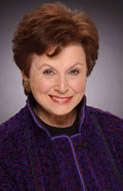06/05/19
Are All Negative Events Equal?
“Of course not,” you say. Yet, we all know people who react to a broken nail with the same alarm as they do to an inferno. For instance, I went to a relaxed discussion of Solomon’s Song of Songs during the final days of Passover a few weeks ago. About twenty people attended. First we introduced ourselves. Mabel was troubled. She shared that she was upset about the recent bombings in Sri Lanka. Definitely a horrible happening. In the same breath, Mabel lamented that the city of Denver was totally out of matzos. These two events appeared to be equally upsetting for Mabel.
I felt for Mabel. If every big or small negative event prompts equal heartache or anger, Mabel is suffering much more than necessary. Ann, a woman I chatted with at a lovely spa, told me about how her husband had died young. I listened and commented that his death was sad. Ann then said, “Would you like to hear another sad story?” I wasn’t sure.
We are certainly experiencing negative times. Self-help gurus encourage us to have positive, happy thoughts. Yet there is a great deal of wallowing going on. How come? It turns out, that negative events and thoughts have a bigger impact on our brains than positive happenings. According to Stanford professor, Clifford Nass, “The brain handles positive and negative information in different [brain] hemispheres.” Negative events are processed more thoroughly. Happy events and thoughts are easier and quicker to mentally digest. We don’t ruminate about the positive as much as we chew on the negative. For me, if I said something stupid or hurtful, I can beat myself up for days. Do I ponder with glee the positive, brilliant, helpful comments I make? No.
Florida State University’s, Roy Baumeister noted in an article titled, “Bad Is Stronger Than Good,” that bad emotions, feedback and events have a stronger impact than good ones. Baumeister states that negative events and thoughts are more difficult to refute. One experiment revealed that if you lost $25, your angst was more intense than the joy felt if you found $25.
Mabel, though craving matzo, may have an advantage. People on the lookout for negativity are more likely to spot and survive dangerous and traumatic events. Professor Nass offered that negative people are often viewed as more intelligent than positive Pollyannas.
An article in The New York Times by Alina Tugend, concludes that since negative comments, events and criticism make a bigger dent than positive happenings, criticism needs to be in small doses. We need to have the opportunity to have and dwell on small wins. Progress on a task is to be applauded since setbacks take a bigger toll.
For those of us who tend to beat ourselves up, we need to consciously focus on our successes. My screen saver says, “Give Yourself A Hug.” I occasionally review the testimonials I’ve received over the years. As Sally Field would say, “They like me. They really like me.”
Take a breath and give negative events a realistic weight in the bigger scheme of things. Savor those positive events. Revel in them.
And, Mabel. Look at the bright side. There is a big matzo stash at Trader Joes. Who knew?
________________________________________________________________________
Thanks to my delightful clients for hiring me to coach them on presentation skills, speak for their organizations, provide training for their companies and deliver witness preparation for their clients who are going to trial. (How’s that for dwelling on the positive?)
If I can be helpful to you in any way, if you want to bore no more, if you are tired of sitting through boring boring workshops and keynotes, call me. You’ll like what you hear. 303-756-6939 or karen@karensusman.com.
———————————————————————————————————–




